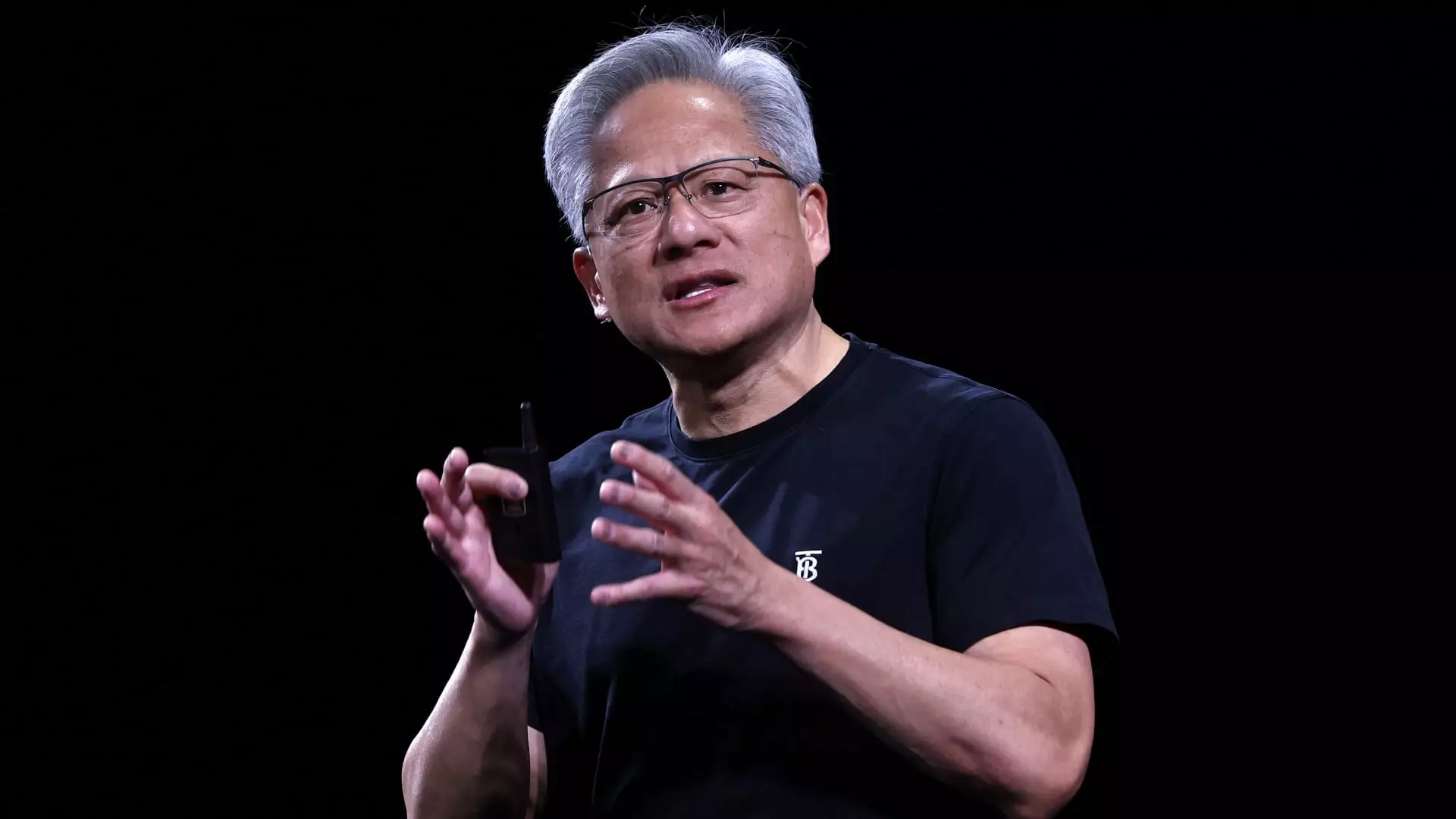Jensen Huang, the charismatic CEO of Nvidia, has emerged as the contemporary rock star of the technology sector, and his recent tour across Europe only bolstered this reputation. His presence at key gatherings in London and Paris radiated a sense of hope and possibility that is palpable in the discussions surrounding artificial intelligence (AI) today. Unlike typical tech executives confined to the corporate world, Huang’s dynamic engagements—a mix of fervent speeches, insightful interactions, and even a merchandise booth—truly felt like a cultural event. His audacity to describe Nvidia as more than a chip manufacturer, but rather a cornerstone of Europe’s AI infrastructure, suggests a shift that could redefine global power dynamics.
Huang’s magnetic appeal and persuasive narrative throughout his appearances—from meetings with heads of state like U.K. Prime Minister Keir Starmer and French President Emmanuel Macron to a keynote speech at Nvidia’s Global Technology Conference (GTC) in Paris—demonstrate an unrivaled ability to capture the imagination of policy-makers and tech aficionados alike. This is not mere theatrics; Huang’s eloquent vision challenges Europeans to forge a cohesive AI strategy that could elevate the continent to the forefront of technological innovation.
The Call for “Sovereign AI”
One of Huang’s most compelling narratives centered on the notion of “sovereign AI,” emphasizing the urgent need for countries to establish independent data infrastructures that cater to their citizens. Against a backdrop of geopolitical complexities, his message is one of empowerment: nations must harness their resources to build robust AI ecosystems that do not rely on foreign data centers. Huang’s remarks struck a chord in Europe, where the desire for technological autonomy is a hotly debated topic. His persuasive rhetoric hinted at a continental awakening, urging European nations to unite and collaborate in building an AI framework that reflects their values and needs.
The partnership between Nvidia and the French startup Mistral to create an AI cloud further illustrates this vision. It highlights the shifting gaze toward local solutions in a domain increasingly dominated by American tech giants. In a world where data sovereignty faces threat from exterior parties, Huang’s approach poses a refreshing alternative to dependency on non-European vendors. This strategic pivot could spell both economic resurgence and technological independence for a region that’s traditionally remained tethered to the whims of Silicon Valley.
Facing the Challenge of International Competition
Another critical aspect of Huang’s discourse revolved around the competition posed by China, particularly concerning innovative chip technology. Amidst U.S. export restrictions limiting Nvidia’s sales to the Chinese market, the discussion inevitably shifted to Huawei, a formidable player aspiring to challenge Nvidia’s dominance. Huang’s candid acknowledgment that China is making strides in developing its AI capabilities—despite being perceived as lagging in semiconductor technology—serves as a wake-up call for Western nations. The air of complacency regarding AI advancement in Europe and the U.S. could lead to perilous consequences if left unaddressed.
Huang’s comments reveal an underlying concern regarding the implications of this competition. With China’s relentless drive to augment its technological capabilities, there’s a tangible risk that nations may gravitate toward partnerships with Chinese firms, thereby diminishing U.S. influence. This potential shift underscores the urgency for American and European companies to invest in innovation and collaboration before the international landscape becomes firmly entrenched in favor of their competitors.
Visions of the Future: Autonomous Technologies and Quantum Computing
As Huang peered into the future, he builds excitement around technologies poised for monumental breakthroughs, particularly autonomous vehicles and robotics. He confidently asserts that this decade will witness a surge in these sectors, largely powered by Nvidia’s advanced hardware and software solutions. This optimism posits a transformative shift not only within the tech industry but across various dimensions of everyday life—reshaping transportation, logistics, and even how we interact with our surroundings.
His ambition extends into the realm of quantum computing, which Huang claims is reaching an “inflection point.” This assertion hints at a transformative leap that could eventually unlock solutions to complex challenges that classical computing struggles to address. The language he employs hints at an impending technological revolution, one that may pave the way for breakthroughs in areas like drug discovery or climate change mitigation.
Overall, Jensen Huang’s European tour serves as a clarion call for nations to rally around a collective vision of AI infrastructure. In this context, Nvidia’s role transcends the commercial sphere, tapping into the complexities of national sovereignty, global competition, and the ethical implications of a rapidly advancing technological frontier. Huang embodies a new breed of tech leader—one who wields not just the power of semiconductor technology but also the potential to inspire a movement towards a more equitable and sovereign digital landscape.

